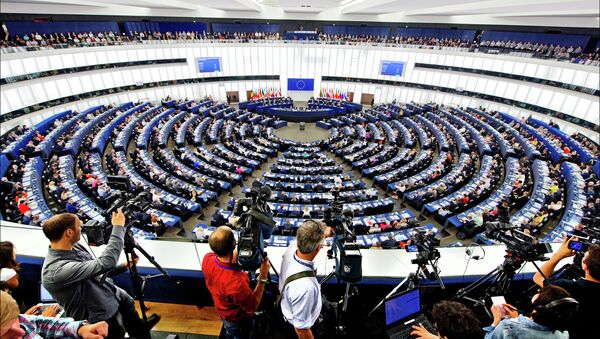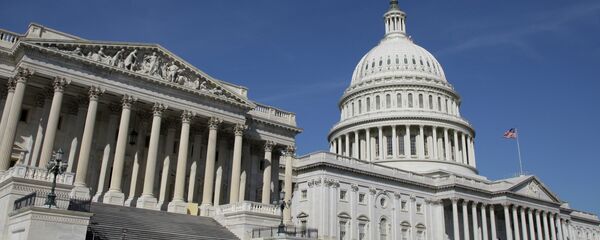"[Members of the European Parliament] urge the EU Council at its March 2015 meeting to maintain current EU sanctions against Russia and approve 'benchmarks' for lifting them," the resolution read.
According to the bloc's legislative body, these benchmarks should include "respecting the ceasefire, unconditional withdrawal of Russian troops and illegal armed groups, exchanging all prisoners and restoring Ukraine's control over its whole territory, including Crimea."
The release added that "in the event of further Russian actions destabilizing Ukraine" restrictive measures would be further expanded to encompass the nuclear sector and international financial transactions in addition to existing banking, energy and defense sanctions.
On Tuesday, European Council President Donald Tusk reiterated the EU's intention to review current anti-Russia sanctions in March. According to EU foreign policy chief Federica Mogherini and remarks made by other regional leaders, the lifting of anti-Russia sanctions is subject to the observation of the Minsk agreements on Ukraine and the stabilization of the situation in Donbas region.
Russian authorities have repeatedly denied claims of involvement in Ukraine's internal affairs, a subject that led to the souring of relations between Moscow and the West in 2014. Several rounds of sanctions were adopted in Brussels, Washington and a number of allied states in response to Russia's alleged military support to southeast Ukraine's militia. These measures were met in August with Moscow's introduction of year-long food import bans from countries that imposed sanctions against it.
The European Parliament's resolution is non-binding for EU bodies on the issue of sanctions.




